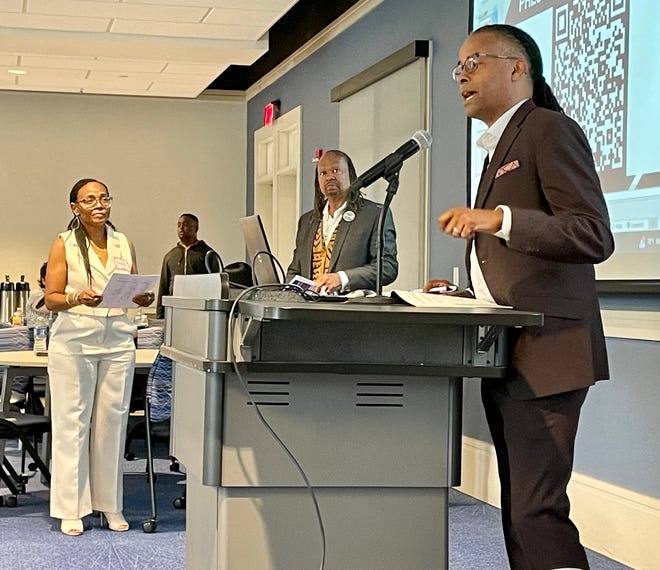Black children with disabilities are less likely to be placed in mainstream classrooms than white children
NEW BRUNSWICK — Black children with disabilities are less likely to be placed in mainstream classrooms than their white counterparts and are also more likely than children of other races to drop out of high school, be suspended or face school-related arrests, according to a new study by Rutgers University’s Joseph C. Cornwall Center for Urban Studies.
These disparities brought a group of Black cultural leaders and disability advocates to Rutgers University last week to focus on the barriers they need to overcome together.
“We’re not just here to talk, we’re here to create a roadmap for real change – to remove the barriers that prevent Black New Jerseyans with disabilities from accessing the opportunities they deserve,” organizer Lederick Horn, co-host of the podcast “Black and Dyslexic,” said at the day-long event on Thursday.
“We’re making history today,” added Bill Davis, who worked with Horn to secure funding for the forum from the New Jersey Council on Developmental Disabilities.
About 75 people gathered for the invitation-only event, dubbed the Black Impact Summit, where discussions focused on the inequities faced by Black people with disabilities in education, employment, social services, law enforcement and legal services, family, self-advocacy and health care.
“Our goal is to put together some recommendations that Congress, state legislatures and various agencies can implement to make life better for Black people with disabilities,” said Davis, a consultant at the Boggs Center for Developmental Disabilities at Rutgers University’s Robert Wood Johnson Medical School.
Among the barriers cited by researchers at the Rutgers University Cornwall Center for Urban Communities is that African-Americans with disabilities have higher rates of poverty and have difficulty accessing health care, despite their heavy reliance on public benefits such as Medicaid. They are more likely to face discrimination in medical settings, have inadequate health insurance and have poorly managed chronic health conditions, the audience was told.
“This summit was born out of a need,” said event coordinator Atonia Worley.
More: North Jersey ‘grief camp’ is refuge for teens facing ultimate loss
The event’s keynote speaker, Professor Tawara Goode of Georgetown University, kicked off the day with a presentation on cultural competency, the need for organizations to understand and respect cultural contexts.
The summit brought together representatives from a variety of advocacy groups and government agencies, including New Jersey ARC, Black Consortium, the state Division of Developmental Disabilities, Advocacy Action Center, NJ STEPS, New Jersey Disability Rights Association, Relief and Social Justice, and the New Jersey Independent Living and Autism Center. Educators and law enforcement officials also attended, as did Paul Aronson, the state’s Disability Ombudsman.
Suggestions from the day will be collected and fed back to the New Jersey Council on Developmental Disabilities, including improving mental health screening and providing resources for people affected by the criminal justice system.
“I thought it was a great conversation, especially with a well-represented group of people with diverse experiences from organizations, families and schools,” said Michael Steinbrook, senior training and consulting specialist at the Boggs Center.
Gene Myers covers disability and mental health for NorthJersey.com and the USA TODAY Network. To get unlimited access to the most important news in your local community, subscribe now or activate your digital account.
Email: [email protected]: Follow



